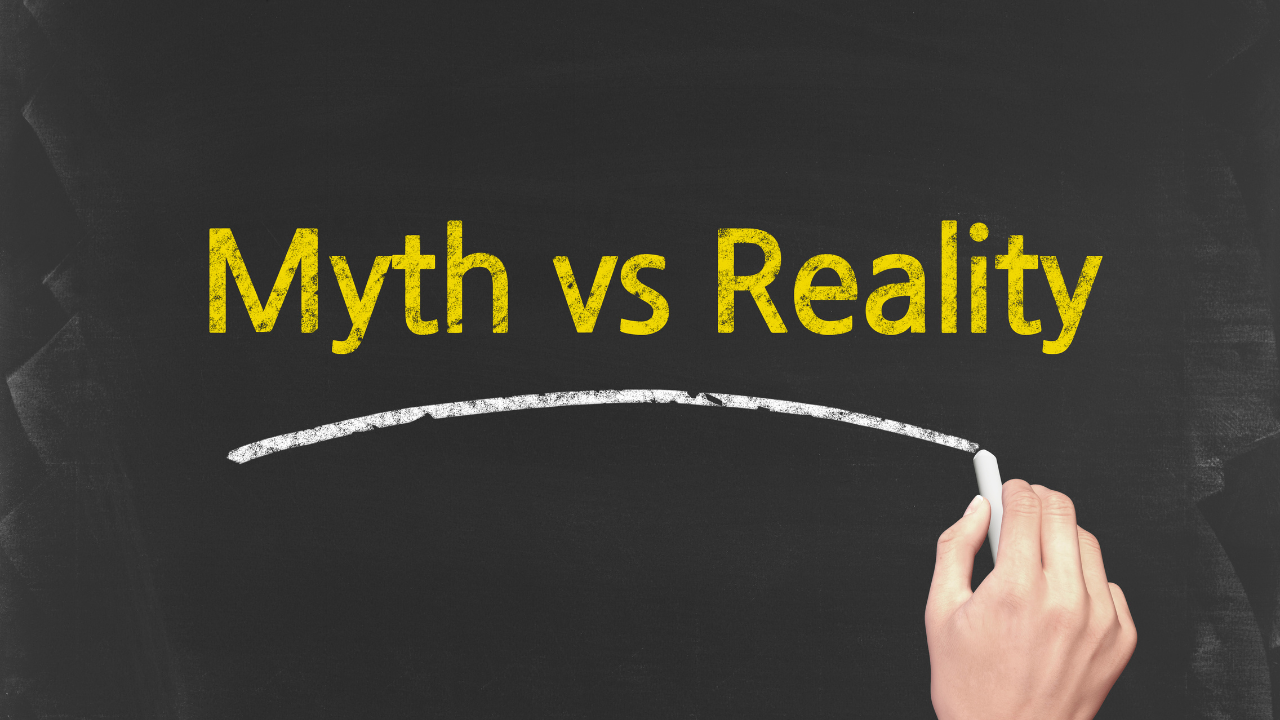Uncover the truth behind weight loss myths with expert Health & Medical insights. Separate fact from fiction for more effective weight management. One of the biggest frustrations with weight control is navigating the world of health and fitness with all the myths and fallacies that have come to be associated with it. For some people, losing weight seems to be a big chaos and some of the hacks and techniques portrayed are more counterproductive than helpful. Some of these are “fat burning foods” claims or even skipping carbs yields faster results, and these are things that can sabotage your progress. In this post, we will focus on explaining several widely held beliefs about losing weight and dispel them based on health and medical evidence so that you can attempt your weight loss journey with authority.
The Fat-Burning Foods Myth: Fact or Fiction?
Out of all of the weigh losing myths, one of the most ineradicable is the saying ‘fat burning foods’. You must have heard of food triad viz. Grapefruit, chili peppers, and green tea and how they are said to help you burn fat faster than any other food. There is lots of emphasis placed that these products can simply “melt” away fat with scant effort. Eating green tea or even spicy food does have some mild impact on metabolism, however the root cause of weight reduction will not be solved by these particular foods, and it will need other more targeted meals and exercise.
Common Fat-Burning Foods and Their Effects
| Food Item | Effect on Fat Loss | Key Nutrients | Effectiveness |
|---|---|---|---|
| Green Tea | Slight boost in metabolism | Catechins, caffeine | Minimal |
| Chili Peppers | Slight metabolism boost | Capsaicin | Minimal |
| Grapefruit | Mild appetite control | Vitamin C, fiber | No significant fat-burning effect |
The Science Behind Fat Burning
Weight loss can be sustained if there is a permanent caloric deficit, which means that one is able to expend more calories than they are taking in. While some foods may offer small advantages in raising metabolism or even improving one’s satiety levels, it is unrealistic to assume that any one single food would ever have such severe consequences on one’s weight loss. Most fundamentally, a diet plan combined with physical exercise and healthy lifestyles remains as the most reliable remedies for weight reduction.
Myth Breakdown:
Green tea: It does Greek tea contains catechins that are known to potentially help in the burning of fats through increasing the metabolism; however, the function is minor.
Chili peppers: This means that capsaicin may be able to raise metabolism for a short time period; however, fat loss due to this factor alone is almost impossible without a comprehensive weight loss program.
Grapefruit: That it burns fat should be considered highly exaggerated. It can certainly assist when a person looks to attain full satisfaction or perhaps helps with proper digestion, but it won’t ‘melt’ the fat away.
Healthy vs. Unhealthy Fats
| Fat Type | Sources | Benefits | Best for Weight Loss |
|---|---|---|---|
| Healthy Fats | Avocados, olive oil, nuts | Support metabolism, hormone regulation | Yes |
| Unhealthy Fats | Fried foods, trans fats, butter | Increase fat storage, heart disease risk | No |
Trimming the Fat: What’s in the Way of Fast Weight Loss
An oft held and misleading belief about weight loss is to do with eliminating certain food items or overly restricting the number of calories consumed. Although drastic weight loss is achievable with these extreme methods, they tend to be difficult to maintain and can result in nutrient deficiencies.
The Barbarians at the Gates of Fats and Carbs
Creating balance does not mean completely cutting out either fats or carbs. Protein, healthy fats, and complex carbohydrates are essential components in controlling your energy levels, muscles growth, and body functioning in the ideal way that it has been designed to.
What Instead You Can Do:
Eliminate processed foods: The consumption of extra calories could be avoided by cutting out refined sugars and processed snacks which tend to send one’s blood sugar on rollercoaster highs and lows.
Be mindful of how much you eat: Healthy food’s inappropriately large portions could also make one put on some extra pounds. Focus on consuming nutrient-rich food items with appropriate servings such as vegetables, lean proteins, and whole grains.
Make sure that you have enough water: Ever confused being thirsty for hunger resulting in binge eating? Well, having plenty of water can aid in appetite control and help accelerate metabolism rate.
Is Weight Loss Linear? Unpacking The Process
Weight loss pertains to many misconceptions, including the one that it should occur in a linear manner. Quite a number of people tend to expect to lose a fixed amount of weight on a weekly basis and thus form a picture in their mind, only to be vexed by the fact that weight loss is non-linear. This myth might serve to shatter your ambitions as people tend to lose their initial excitement of weight loss when they hit a point or a phase in their journey where they feel that nothing is changing.
Reasons Why Weight Loss Is Not Linear
Your body weight can change day to day for the following reasons – owing to temporary shifts in water level, hormonal fluctuations, an increase in muscle mass and even as an adaptive response for your metabolism. Those venturing into weight loss can expect to be delighted with a fast weight loss in the beginning stages and within the case of when the body begins to adapt, the speed begins to plateau. This scenario is ideal and should be expected.
Factors That Cause You To Lose Weight Intermittently
Hormonal alterations: There are various hormones such as cortisol (which is referred to as the stress hormone) and insulin which influence fat storage as well its metabolism which may cause the weight of a person to relate to certain changes.
Increased Muscle: When you start burning more calories due to the increased muscle activity, it is likely that your weight won’t drop as much, though you may still be reducing fat.
Retention of water: Consumption of sodium, the levels of physical exercise and the menstrual cycle of a woman are all key causes of water retention in the body.

The Bottom Line
We have to understand and accept, the reality of not losing weight for a period of time, is quite normal. The gradual weight loss can be assessed considering a longer time frame and as long as there is consistency. It is better to concentrate on getting healthy over worrying about the numbers on the scale.
Fats or Carbs for Weight Loss: Which Is Better?
A constant battle in weight loss seems to be both fats and carbs. Low-carb diets (like keto) have become very popular with advocates of it convinced that it is the only way to effectively lose weight. Fats on the other hand are regarded in a negative light, with people thinking it needs to be completely cut out to lose weight.
Fats vs. Carbs: The Truth Behind the Debate
Fats and carbs both have their places in a well-balanced diet. The answer is not to eliminate everything but rather, incorporate the right varieties and amounts to suit your dietary requirements.
Carbohydrates: Carbohydrates are the main energy source of our body. Whole grains, vegetables, fruits, and legumes provide plenty of fiber and other nutrients, which should be included in a balanced diet. While the reduction in refined carbs (for example whites’ bread and sugar) can aid for weight loss and control blood sugar levels, the total and absolute removal of all carbohydrates will not be beneficial.
Fats: Good fats, like the ones present in avocados, olive oil, seeds and nuts, etc. can be very useful in controlling the hormones of the body as well as can promote brain functionality and a sense of fullness and satiety. Just like carbohydrates, fats also come in different kinds, but unfortunately so do the drawbacks. The intake of saturated fat should be minimized, while things like polynoid or monounoid fats should be the primary focus instead.
Which Fats Should You Concentrate On?
Let go of the fatty carbs versus fats, eat and most importantly eat vegetables, proteins, healthy fat and complex carbs in plenty. Try to consume whole foods instead of too many processed foods, which contain a lot of unhealthy fat and simple sugars.
Health & Medical Insights: The Holistic Approach to Weight Loss
The most effective way to lose weight and keep it off for years is to take a more balanced approach that encompasses mental health, a diet, physical activity and some medical methods as well. Here us what each of these plays out like:
Mental Health: The mind is a powerful beast in the weight loss ordeal. Things like stress, emotional drives and lack of sleep can be some major barriers to distressing the body for weight reduction. Try to do some meditation, stress management techniques and relax and get some sleep in order to lose weight successfully.
Exercise: Even though weight is quite routinely lost with the right diet, regular exercise is key to maintaining muscle tissue, keeping lamp up, and other health as well.
Medical Security: Medical coverage will allow you to get help from nutritionists, fitness programs, and even medical consultations that can support your weight loss journey.
FAQs: Weight Loss Myths and Medical Insights
What is some common fat-burning foods?
While some foods like green tea and chili peppers have mild metabolism-boosting effects, no single food will directly burn fat. Weight loss is most effective when combined with a calorie deficit and exercise.
What should I cut out to lose weight quickly?
Rather than cutting out food groups, focus on eliminating processed foods, sugary snacks, and refined carbs. Instead, emphasize nutrient-dense foods like vegetables, lean proteins, and whole grains.
Is weight loss linear?
No, weight loss is not linear. Weight loss will likely slow down over time due to factors like water retention, muscle gain, and hormonal fluctuations. Patience and consistency are key.
Which is better for weight loss: fats or carbs?
Both fats and carbs are essential for a healthy diet. Focus on consuming healthy fats and complex carbohydrates, while limiting refined sugars and unhealthy fats for optimal weight loss.
Conclusion: The Truth About Weight Loss
While weight loss myths can be misleading, it’s important to focus on proven, sustainable methods that work for your body. A balanced diet, regular exercise, proper sleep, and stress management are all key to achieving long-term success. Avoid the temptation of quick-fix solutions and instead embrace a holistic approach to health. Remember, consistency is the key to lasting results.






